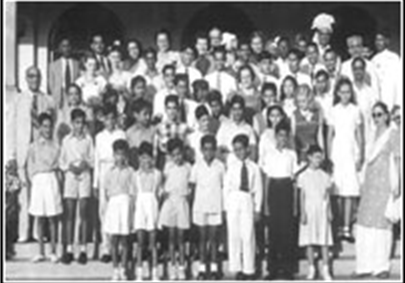Pakistan: Assassinations (Liaquat, Benazir, Asif Nawaz)
This is a collection of articles archived for the excellence of their content. Readers will be able to edit existing articles and post new articles directly |
Assassination: Benazir Bhutto
TTP claims responsibility (Book: "Inqilab Mehsood South Waziristan – From British Raj to American Imperialism”)
We killed Benazir Bhutto, TTP claims in its book, January 16, 2018: The Express Tribune > Pakistan,
(This article originally appeared on Economic Times)
A book, “Inqilab Mehsood South Waziristan – From British Raj to American Imperialism” released by the Tehreek e Taliban Pakistan claims responsibility for the assassination of Benazir Bhutto, the former prime minister of Pakistan in 2007.
“She allegedly planned to collaborate with the US against the mujahideen if she returned to power,” is the reason stated by the book for the assassination.
“The return of Benazir Bhutto was planned at the behest of the Americans as they had given her a plan against the Mujahideed-e-Islam. Baitullah had received information of the plan,” the book further claims.
According to reports, no group had previously claimed responsibility for Bhutto’s murder until this claim in TTP’s book.
The Pakistan People’s Party (PPP) chief Bhutto was killed in a suicide attack in Rawalpindi on December 27, 2007.
Former president Pervez Musharraf had even blamed TTP for the attack.
The book claims that two suicide bombers, Bilal and Ikramullah were tasked to carry out the attack.
“Bomber Bilal first fired at Benazir Bhutto from his pistol and the bullet hit her neck. Then he detonated his explosive jacket and blew himself up among the participants of the procession,” the book claimed.
The book has been written by TTP leader Abu Mansoor Asim Mufti Noor Wali and was published on November 30, 2017 at “Maseed Computer Centre in Barmal” which is in Afghanistan’s Paktika province.
It is a 588-page book and contains many photographs of Taliban leaders.
The book even says that TTP was involved in a suicide bombing two months earlier at Bhutto’s procession in Karachi in October 2007 that killed 140 people but Bhutto remained unhurt.
Revelations by the book relay that Baitullah Mehsud had approved the Karachi attack on Bhutto’s procession.
“Despite attacks on Benazir Bhutto’s procession in Karachi, the government had not taken appropriate security measures that made it possible for the attackers to have easy access to Benazir Bhutto in Rawalpindi,” the book states.
“Ikramullah, a resident of Makeen town in South Waziristan escaped from the blast site and is still alive.”
However, it is not sure if this is the same Ikramullah who was declared an absconder by an anti-terrorism court along with five others.
Musharraf had been charged in the case as well but ATC declared him an absconder as well.
The former president and army chief denied his involvement many times and dismissed the charges as politically-motivated.
Subsequently, the ATC convicted two police officials, Saud Aziz who was the police chief of Rawalpindi when Bhutto was murdered and Khurram Shahzad, a former SP of police at Rawal town.
Both of them were sentenced to 17 years in jail but were granted bail by the Lahore High Court in October 2017.
TTP leadership denied any involvement in the murder until Bhutto’s 10th death anniversary.
Assassinations: Liaquat Ali Khan
BB, General Asif Nawaz
‘Daddy Don’t Go’
By Anjum Niaz
We’ll never know why the 10-year-old Akbar ran after his father to stop him from going to Rawalpindi. Did he have a premonition?
Ashraf Liaquat Ali Khan, older by four years, remembers how his parents celebrated his 14th birthday at the then PM House in Karachi, barely two weeks before his father was assassinated.
“My whole class at Karachi Grammar School was invited.” Does Ashraf know who killed his father, now that new revelations blaming America surfaced in Washington when certain documents were declassified in 2006? “Was it really the Americans?” He can’t say, but “America wanted my father’s help in subduing the Iranians as they wanted Iranian oil. But he refused.” Adding another twist to the mystery, Ashraf tells me, “The plane carrying the inquiry officer on board who had the answers to who killed my father was blown to smithereens in midair. We were told that there was no other copy of the investigation.”
Was Army Chief General Asif Nawaz poisoned? If you talk to his brother Shuja Nawaz, author of Crossed Swords, you get the idea that he was. If you talk to General ( retd) Naseeruallah Babar, you’re told in no uncertain words that he was not. And if you talk to an army doctor who was connected with the case, you get a whole new dimension.
Who killed Benazir Bhutto? If you believe her widower Asif Zardari, you’d agree with him that the establishment had a hand and therefore only a UN inquiry costing the taxpayers millions of dollars can solve the mystery. If you talk to a head of a security firm in Karachi who was asked to provide the armoured SUV’s (sports utility vehicles) for Benazir Bhutto you’re told that Rehman Malik asked for sun roofs to be installed in the cars. Every security firm in Pakistan responded with an emphatic ‘No.’ Said one, “How can an armoured car have a sun roof? The whole idea of security is killed. Think about it,” they argue.
Who killed Prime Minister Liaquat Ali Khan? “Right up to the day my mother died, she wanted to know who killed my father,” says Ashraf. If you read the declassified documents on the Internet, you discover that America was behind the murder. And if you ask Ashraf again if the Indians did it, he quotes his mother, Begum Ra’ana Liaquat who was pointedly told by the bigwigs in India that they had no hand in the foul play. If you ask around you’re told by some that the politicians of those days in cahoots with the army had the first prime minister of Pakistan eliminated.
Confusion worst confounded.
Still, it’s the right of every Pakistani to ask who killed the above three VVIPs. We draw a blank from our establishment in BB’s case while the establishment has conveniently closed its files on Liaquat Ali Khan’s assassination and General Asif Nawaz’s sudden death. In the former’s case, we don’t have an answer from the establishment, while in the latter’s case, the government has told us that the Army Chief died of a heart attack.Brother Shuja Nawaz - journalist, military analyst and author was in Islamabad recently from Washington. In his book Crossed Swords, he has reproduced anonymous letters written by the staff serving Prime Minister Nawaz Sharif who allege that they would dust the dinner plates with arsenic powder every time Asif Nawaz came for a meal at the PM’s house. Furthermore, the author has reproduced in full the forensic reports of well known doctors based on an examination of the deceased’s hair. Their verdict: Asif Nawaz had high levels of arsenic in his blood that could kill. General ( retd) Babar called me up from Peshawar to refute the claim, saying he sent samples to France and Russia which were negative.
Whom does one believe? I ask Shuja Nawaz. He thinks Naseerullah Babar’s memory is playing tricks. “Where did he get hold of my brother’s hair?” he says, “We never gave it to him.” When I ask Babar, he tells me, “well, I’ve told you everything that there is to tell. Nawaz Sharif is innocent, there was no foul play but if the family (Shuja Nawaz ) doesn’t want to believe it, then it’s their personal affair.”
A retired brigadier who served in the army medical corps adds another dimension to the mystery. He says the late COAS was taking energy boosting pills that contained safe levels of arsenic. When I ask Shuja Nawaz, he hotly denies the story.
Talking about sensitivities, Ashraf Ali Khan recalls the Christmas Day in 1947 when his father in a fit of anger sent in his resignation. His parents had been invited to celebrate Christmas with the Quaid and Miss Fatima Jinnah. “After lunch the Quaid took my father aside and asked him why Begum Ra’ana Liaquat did not sit on the same sofa where Miss Jinnah was sitting and why she had declined a glass of sherry which her host wanted her to partake of.
The Quaid was visibly annoyed. So, when my father came home he sent in his resignation!” Had the resignation been accepted, the first prime minister of Pakistan could have died a natural death, instead of being gunned down in Rawalpindi and leaving no clues behind of his murderers.

